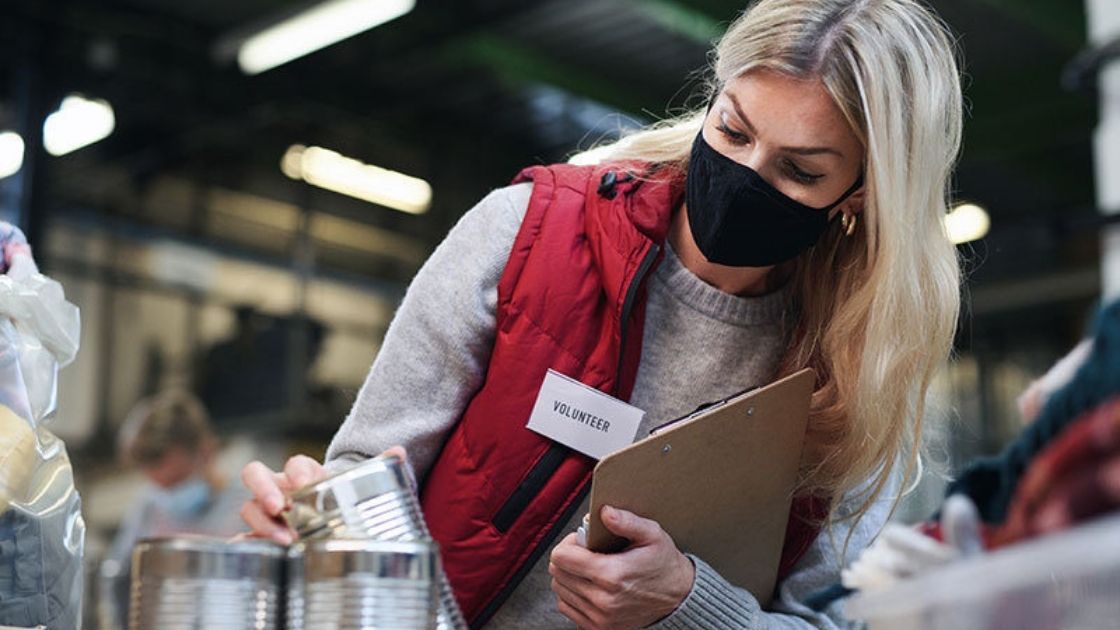
Honoring women who work in disaster areas
It’s been a year of disasters.
Vulnerable communities around the world have taken a hit, a pandemic has haunted us, economic fears and cultural clashes have been reported, and with the rise in food insecurity, abuse, and human trafficking, we can be sure that this last year has left devastation across the globe.
While it is easy to get discouraged, I have the honor of taking a front seat to watch women serve in areas that are male-dominated in many cultures. I’m thinking specifically of those serving in disaster and emergency relief ministries. Together, women have been bringing the light of hope to the world and discovering the ways that God can use them.
“Feed the hungry and help those in trouble. Then your light will shine out from the darkness, and the darkness around you will be as bright as noon” (Isaiah 58:10, NLT).
Deborah Gilbert remembers how she had packed her knife just in case she needed it for safety when she traveled to the Bahamian island of Great Abaco, shortly after the decimation of Hurricane Dorian. She had been trained as a technical operator for World Hope International’s desalination and solar-powered water system and was sleeping alone in a tent while working to provide clean water for residents. Where she was stationed, there was no power, no cell signal, no security, no public airport, and complete devastation around her. It occurred to her that although some people would feel uncomfortable with a woman living and serving in such extreme conditions, equity is important on disaster response teams.
“Doing disaster relief reminded me that I am strong and capable to do what I set my mind to,” said Gilbert. “Being a woman doesn’t stop you from doing hard work; it reminds you that God built you for tough opportunities.”
Jen Hansard, who traveled to Grand Abaco at the same time, shared that being a woman on the island made her stand out, as most women and children had been evacuated. “I leaned into who I was and did what any mom would do — I took care of people.” She listened to the needs of those who had survived the hurricane and handed out food, solar-powered lights, tarps, and water for drinking and bathing.
“I believe so many of the survivors opened up to me to share their trauma because I was a woman and was willing to listen and come beside them to help,” said Hansard, who was able to create a place where people could share their stories, griefs, and fears connected to the tragedy.
This care could easily not have happened because some of the survivors would not have felt comfortable sharing their stories with men — yet another tragedy of the inequity of gender division and the expectation of gender-based roles. Also, the burden of emotional caregiving can fall on women, and men can suffer without as many opportunities to have people share their grief and hurt. Both men and women can be gifted to care and serve in this way.
“Being a fresh-water specialist and emergency relief volunteer has helped me empathize with other women, knowing how their hearts are hurting for their family and from their loss,” said Rhoda Sturgeon. “My gifts are in emotional and spiritual care. I’ve had loss and pain in my life, and thankfully, God has brought me through, and I am now able to help meet the needs of those who are hurting when doing disaster relief ministry.”
This year, when I realized our Canadian Wesleyan Church members had the desire to serve their local community during disasters and emergencies but did not have an outlet for this, I began to search for the right partner. It was through this journey that I met Perron S. Goodyear, territorial director of emergency disaster services for The Salvation Army in Canada and Bermuda. I began to dream with him about our Wesleyan volunteers serving in our local regions in partnership with The Salvation Army in Canada, and his passion for men and women serving alongside each other to help provide hope caught my attention.
“The Salvation Army is thrilled to be partnering with World Hope International to assist with domestic emergency response,” said Perron. “The missions of both organizations are well aligned, including a long history of gender equity. This new partnership will enhance The Salvation Army’s ability to continue Giving Hope Today, even in the midst of disaster.”
This blog was written by World Hope International – Canada’s CEO, Tanya Nace, and is cross-posted from its original publication by The Wesleyan Church. Learn more about our disaster response work around the world. You can also support this and other transformative projects by making a gift to The Hope Fund.
